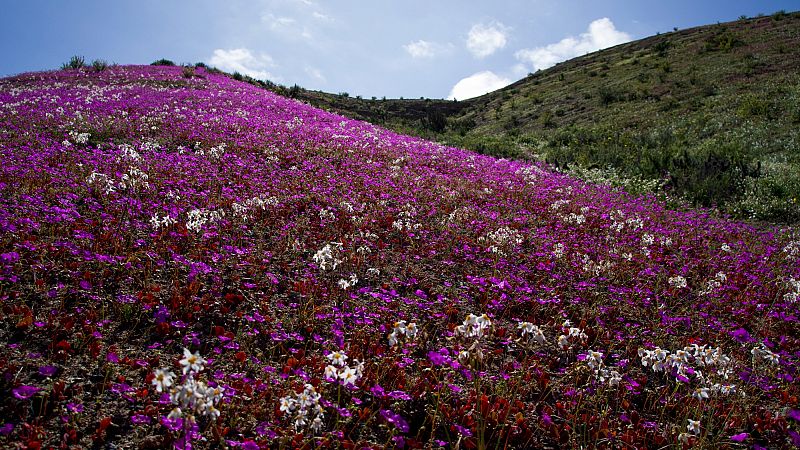Chile’s Atacama Desert blooms after rare winter rains

The transformation followed months of higher-than-average rainfall across the desert’s foothills and highlands, marking one of the wettest years in recent memory.
Scientists say more than 200 plant species lie dormant beneath the Atacama’s red soil year-round, waiting for enough moisture to spark life. This year, rainfall from both the Amazon basin and the Pacific coast exceeded the threshold needed for germination, triggering a spectacular explosion of colour across the landscape. The result is a fleeting yet breathtaking display that has drawn thousands of visitors to the northern Copiapó region.
The floral phenomenon, which lasts only a few weeks, has become a symbol of resilience in one of the harshest climates on the planet. To protect it, Chile established the Desert Bloom National Park in 2023, safeguarding more than 500 square kilometres of flower fields along the Pan-American Highway. By November, most blossoms will fade as temperatures rise, leaving behind dormant seeds that will once again wait for the rare gift of rain.
Today

